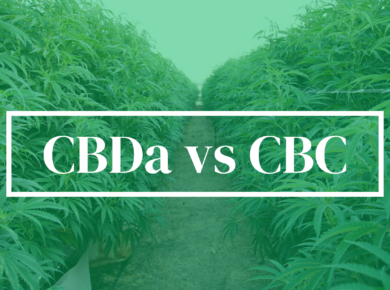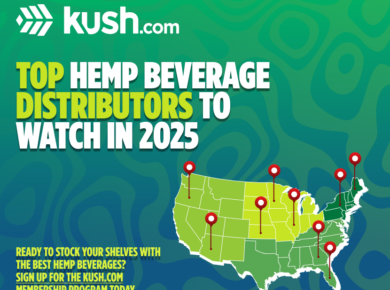Delta 9-THC (Tetrahydrocannabinol) and CBG (Cannabigerol) are both naturally occurring cannabinoids derived from hemp and cannabis plants. While originating from the same plant family, their chemical structures and interactions with the human body are notably different.
Delta 9-THC, commonly known as THC, is the most prominent cannabinoid, gaining attention due to its psychoactive attributes that cause a sensation of euphoria. This compound primarily engages with the CB1 receptors in the brain, influencing mood, perception, and cognitive functions.
In contrast, CBG, often referred to as the ‘stem cell’ of cannabinoids, is non-psychoactive, meaning it doesn’t produce the same ‘high’. As the precursor for other cannabinoids, including THC, CBG interacts with both CB1 and CB2 receptors, yet its specific effects remain a subject of ongoing research due to limited studies.
When considering their molecular relationship, both THC and CBG originate from cannabigerolic acid (CBGA). As the cannabis plant matures, enzymes transform CBGA into various cannabinoids, with THC being the most well-known.
It’s essential to recognize that while THC and CBG are integral to the hemp and cannabis plant, their psychoactive impacts and interactions with the endocannabinoid system are distinct.
Many States allow hemp derived cannabinoids under the 2018 Farm Bill as long as they contain less than .3% D9 THC. Some States have explicitly banned cannabinoids like Delta 8, so check your local rules and regulations before purchasing.
Here’s the rules for Kush.com and more details
Frequently Asked Questions (FAQs) What Are THC and CBG? These are cannabinoids, with THC known for its psychoactive effects and CBG being non-psychoactive.
How Are THC and CBG Formed in Cannabis Plants? Both stem from cannabigerolic acid (CBGA). Over time, enzymes in the maturing plant convert CBGA into different cannabinoids.
What Effects Do THC and CBG Offer? THC induces a ‘high’, while CBG, devoid of psychoactive properties, has more subtle effects that are still being explored.
Can THC and CBG Be Consumed Together? Yes, many cannabis strains combine these cannabinoids. However, their combined effects can vary significantly.
How Should One Decide Between THC and CBG Products? Your choice depends on personal preferences. For psychoactive effects, choose THC. For non-psychoactive benefits, CBG might be more fitting. Always conduct thorough research or consult with professionals.
Shop
Similar Product Searches You Might Be Interested In:





